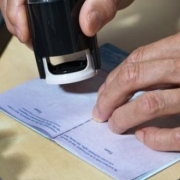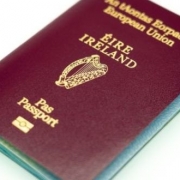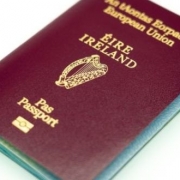UK BILL INTRODUCED TO END FREE MOVEMENT OF PEOPLE
The United Kingdom has recently passed The Immigration and Social Security Co-ordination (EU Withdrawal) Bill, which was first introduced on 5th March 2020. The Bill, which ends the principle of free movement of people in the United Kingdom, is set to be introduced upon the conclusion of the transitional period on 31st December 2020.
The Bill, passed by 351 votes to 252 on 18th May 2020, has marked concrete developments in the UK’s transition into a points-based immigration system. The UK government clarified in February that points will be awarded for certain requirements such as the ability to speak English, having a job offer from an approved employer and meeting a salary threshold of £25,600. Points may also be awarded for certain qualifications or for working in an area where there is a shortage of workers.
However, the Bill clearly prioritises migrants with “high skilled jobs” which concerningly appears to be determined based on financial thresholds above any other factor.
UK Home Secretary, Priti Patel, has stated “We’re ending free movement to open Britain up to the world. It will ensure people can come to our country based on what they have to offer, not where they come from.”
The Bill includes provisions intended to uphold the historical entitlement of Irish citizens to enter and remain in the UK without the need of seeking permission or leave to do so.
These provisions relating to Irish citizens will operate alongside the Common Travel Area (CTA) regime once EU freedom of movement comes to an end.
Under the CTA, Irish citizens are permitted to move freely between Ireland and the UK and vice versa. This extends to the right to enter, reside, pursue education, take up employment and access State benefits. On the 8th May 2019, both the Irish and UK government signed a Memorandum of Understanding which reiterated their commitment to the CTA and to the maintenance of the derived rights from this agreement.
The Bill has made it clear that the rights being afforded to Irish citizens are more far-reaching than those afforded to other EEA nationals. The UK government’s position is that Irish people will have a general right to reside in the UK which is separate to their rights as EU citizens.
Although this Bill provides legislative certainty to Irish citizens on their rights to enter and reside in the UK without leave, disappointingly the provisions are not yet provided for in comprehensive detail.
The Irish Human Rights and Equality Commission called for an international treaty in their November 2018 report to formalise common immigration rules and the rights of Irish citizens in the UK during the wake of the uncertainty caused by Brexit.
The Bill places EEA and Non-EEA nationals on the same footing in terms of immigration permissions in the UK.
The free movement of people across 28 countries, considered to be one of the greatest achievements of the European Union, has been significantly reduced by this Bill.
The UK’s new system will take a restrictive economic approach to those considered eligible to travel to the UK and will disproportionately affect those not considered to be “skilled workers” i.e. those who earn less than £25,600 per annum.
This concern caused by this Bill is exacerbated by the ongoing Covid-19 crisis, and the proposed immigration rules will undoubtedly deem many healthcare workers ineligible to reside in the UK.
Despite the Home Secretary referring to the introduction of a fast-track visa for doctors, nurses and other health professions, the passing of this Bill will understandably create a huge amount of worry to those already facing extreme pressure and uncertainty caused by both Brexit and Covid-19.
It’s expected that this Bill will consequently restrict the freedom of movement of UK citizens in both the EU and outside the EU.
It seems that further details of the UK’s move towards a controversial points-based system will likely not be formalised until the conclusion of the transitional period in December 2020.









